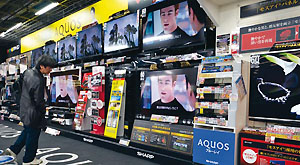Time for China Companies to Have Brand Strategy
China Daily, November 25, 2013 Adjust font size:
There are many Asian corporations that could quite easily take their place in the global league and sit alongside the likes of the Coca-Cola Co or even Apple Inc.
Before that can happen, however, Asian companies must accept branding for what it is, rather than relegate it to the marketing department.
"The new change-makers in Asia are the second- and third-generation family owners who for the first time are daring to question the existing business models," Roll says.
It is natural for younger generations to want to move away from the traditional Asian manufacturing and trading paradigm into an era of brands and trademarks, he adds.
"They typically have overseas experience from other industries or consulting, and they bring that mindset back to Asian boardrooms."
If the recent report by the McKinsey Global Institute, Urban World: The Shifting Global Business Landscape, is any guide, by 2025, there will be some 7,000 new global corporations with revenues in excess of US$1 billion.
A large number of them will be from China and Asia.
"By 2025, some of the global leaders in many industries may be companies we have not heard of. Many of them are likely to be based in cities that we could not point to on a map," the report says.
"The proliferation of large companies is likely to usher in an era of heightened corporate competition for markets, resources and talent."
The big questions, however, will rest on the leaders' ability to brand themselves and be aggressive in their branding.
There are enough success stories in the region, however, to prove that it can be done by Asian companies.
Ho Kwon Ping, founder and executive chairman of the boutique hotel and spa chain Banyan Tree built his group's brand from scratch.
"We are an Asian company that is global, with hotels in Asia, Mexico, the Middle East and Africa. We employ 12,000 people from 66 different nationalities.
"Our policy has always been that our core brand asset must remain universal to all customers," he said, speaking during a panel discussion on brand building at the Asia Consumer Summit in Singapore last year.
Ho explained how customers resonate to the same values all over the world.
"One of our core values is a sense of place. If a customer goes to one of our hotels in Mexico that person will know where he or she is."
He said that it is not his company's policy to develop a brand that caters just for one demographic.
"The success of a brand," he added, "must be universal."


